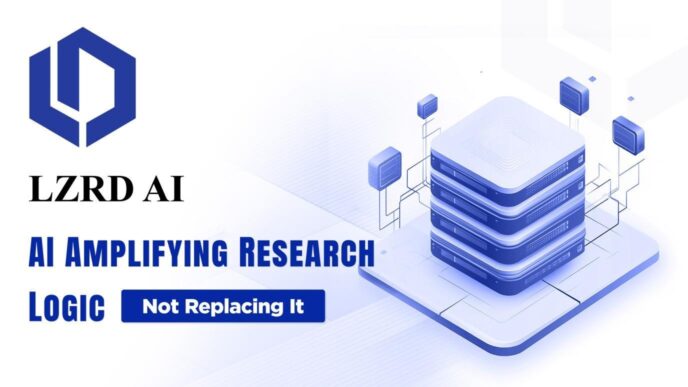Navigating the world of work today means understanding your rights when it comes to privacy. It’s a big topic, especially with all the technology around. From how your employer might watch what you do online to how they handle your personal info, employment privacy is something everyone should know about. Let’s break down some of the key areas you need to be aware of.
Key Takeaways
- Employers can monitor your computer and internet use, especially on company devices, but there are limits. They need to be careful not to cross lines with sensitive personal data.
- Your personal information, including medical records, needs protection. Data breaches can lead to legal trouble for companies, so they have a duty to safeguard your info.
- When it comes to social media, employers can have policies, but they can’t always stop you from discussing work conditions or criticizing the company, especially if it relates to safety or public policy.
- State laws play a big role in employment privacy. Some states have specific rules about notice and consent for monitoring, and a few even have broader privacy rights written into their constitutions.
- Being open about monitoring practices is important. Employers should tell employees what’s being tracked and why. This helps build trust and can prevent misunderstandings.
Understanding Employee Monitoring Practices
These days, it feels like everything is tracked, and the workplace is no exception. Employers use various methods to keep an eye on things, often with the goal of boosting productivity, making sure company resources are used right, or even just to have proof if something goes wrong legally. Think about software that watches what employees do on their computers, like which websites they visit or even what they type. Then there’s video surveillance in common areas, and GPS tracking on company vehicles. It’s a lot, and it’s important to know where the lines are drawn.
Legal Boundaries of Workplace Surveillance
So, what exactly can employers legally watch? Generally, if you’re using company-owned equipment, like a work computer or phone, you don’t have much privacy. Employers can usually look at emails you send from your work account and track your internet activity on company networks. It’s a bit like using a company car; they have a right to know how their property is being used. However, there are limits. Monitoring in private areas like bathrooms or locker rooms is a big no-no and can lead to serious legal trouble. Also, while they can monitor business calls on company phones, they generally can’t listen in on personal calls unless you’ve given them permission.
Transparency in Monitoring Communications
It might seem obvious, but being upfront about monitoring is a really good idea. Many employees are okay with being watched if they know why and how it’s happening. Clear communication about monitoring policies can actually build trust. If your employer uses monitoring tools, they should tell you. This includes letting you know what kind of data is being collected and why. Some studies show that when employees understand the purpose, they feel more comfortable. It’s also helpful if employees can see the data collected about them and have a chance to discuss it.
State-Specific Monitoring Regulations
Here’s where things get a little more complicated: laws about employee monitoring can change depending on the state. Some states have stricter rules about notifying employees before monitoring begins, or they might require specific consent for certain types of surveillance. For example, California has pretty strong privacy laws that extend to the workplace. Other states might have different requirements for things like video surveillance or tracking employee location data. It’s a good idea for employers to check the specific laws in the states where they operate to make sure they’re following all the rules.
Protecting Sensitive Employee Information
So, employers collect a lot of personal stuff about us, right? Things like your Social Security number, your birthday, and other details that are pretty private. It’s really important that companies keep this information safe. Think about it, if your data gets out there, it could cause a lot of trouble for you. Laws are in place to make sure employers handle this data carefully.
Safeguarding Personal Data from Breaches
When a company has your personal details, they have a duty to protect it. This means putting up good defenses against hackers or anyone who shouldn’t see it. If there’s a data breach, and your sensitive info is exposed, the company could face lawsuits. It’s not just about following the law; it’s about building trust with employees. Companies need to be smart about how they store and manage this information, making sure it’s not just lying around where anyone can grab it. They have a responsibility to maintain the confidentiality and security of this data.
Handling Medical and Genetic Information
Your health information is especially sensitive. Employers generally can’t just ask for your medical records or genetic information without a good reason, and they definitely can’t use it to discriminate against you. For example, they shouldn’t decide not to hire you just because they think your health condition might cost them money on insurance. Sometimes, you might share limited medical details with your boss, like when you need to take time off for an appointment. Even then, that information needs to be kept private and handled with care. It’s a tricky area, and if you feel your medical privacy has been invaded, talking to an employment lawyer might be a good next step.
Legal Obligations for Data Protection
There are specific laws that tell employers exactly how they need to protect your data. For instance, in California, there are rules about what personal information companies can collect and how they must tell you about it. Some states require employers to give you a notice about their data collection practices when they hire you. They also need to have reasonable security measures in place. If they don’t, and your data gets stolen, you might have a legal claim against them. It’s a big responsibility for employers, and they need to stay on top of all the different state and federal rules to avoid problems. You can find more information about employee privacy rights on pages about privacy laws.
Navigating Social Media and Privacy Rights

So, you’re probably wondering about your social media and what your employer can and can’t do, right? It’s a bit of a minefield out there. Generally, employers can set rules about using social media during work hours. They also have the right to monitor what you do on company computers and networks. But here’s the tricky part: where does their reach end when it comes to your personal online life?
Employer Policies on Social Media Use
Many companies have specific policies about social media. These usually cover what you can post, especially if it relates to the company or your job. It’s a good idea to read your employee handbook carefully. Some policies might restrict you from posting negative comments about the company or sharing confidential information. It’s not uncommon for employers to monitor company-related discussions or even your activity on work devices. For instance, they might check if you’re spending too much time on social media instead of working. Understanding these policies is key to avoiding trouble.
Protected Employee Speech and Criticism
Now, this is where it gets interesting. While employers can set rules, you might still have protections for certain types of speech. For example, if you’re talking about working conditions, safety issues, or something that affects public health, you might be protected under whistleblower laws. The Sarbanes-Oxley Act, for instance, can protect employees who report suspected financial fraud. So, if you’re complaining about something that genuinely impacts workplace safety or violates public policy, your employer might not be able to punish you for posting about it. It’s a fine line, though, and depends heavily on the specifics of what you say and the laws that apply. You can find more information on the legal implications of employee social media activity at Super Lawyers.
Disparaging Employers Online
Talking negatively about your employer online, especially if it’s about confidential company matters or could harm the company’s reputation, is usually a no-go. Employers can discipline you for this. However, they have to be careful. If your criticism is tied to reporting illegal activities or something that violates public policy, you might be protected. It’s a complex area, and what might seem like a simple complaint could have legal ramifications. Employers need to balance their right to protect their business with employees’ rights to speak out about legitimate concerns. Many states have specific rules about this, so it’s always good to know your rights based on where you work.
Employee Privacy in the Digital Age
In today’s world, a lot of our work happens online, and that brings up some questions about privacy. When you’re using company computers or the internet provided by your job, it’s important to know that your employer likely has the right to keep an eye on things. This isn’t usually about spying on you personally, but more about making sure company resources are used for work and not for anything that could cause problems.
Monitoring Computer and Internet Usage
Think of company computers and networks like a company office. Just as an employer might see what websites you visit if you’re using their computer in the office, they can generally monitor your online activity when you’re using their equipment. This can include the websites you visit, emails you send using your work account, and even what you type. The key here is that it’s usually happening on company-owned property. They have a reason to make sure their systems aren’t being misused or aren’t putting the company at risk. This data can sometimes be used if there’s a dispute at work, but it could also potentially help an employee if they’re dealing with something like harassment.
Privacy Expectations on Company Devices
When you use a company laptop, phone, or tablet, your expectation of privacy is pretty limited. Employers can often look through files stored on these devices, check your browsing history, and even see what apps you’re using. It’s a good idea to assume that anything you do on a company device could be seen by your employer. If you need to handle personal matters or store personal information, it’s best to use your own devices and personal accounts.
Remote Work and Employment Privacy
Working from home or remotely adds another layer to this. Many companies have started monitoring remote workers more closely, often to keep track of productivity and ensure data security. This can include tracking work hours, monitoring computer activity, and sometimes even location tracking. While many states require employers to tell you if they’re monitoring you, the specifics can vary. It’s always a good idea to check your company’s policies on remote work and electronic monitoring. Being aware of what’s being tracked and why can help you manage your own privacy while still meeting your job requirements.
Key State Laws Impacting Employment Privacy

When it comes to keeping tabs on employees or handling their information, the rules can get pretty complicated, and they really change depending on where your business is located. It’s not a one-size-fits-all situation, so knowing the specifics for your state is a big deal. Some states have really strong privacy protections built right into their constitutions, which means employers have to be extra careful.
California’s Comprehensive Privacy Rights
California is a big one to watch. They’ve got laws like the California Privacy Rights Act (CPRA), which really beefed up privacy protections. While it mostly focuses on consumers, it does have some important implications for employees. For instance, employers in California have to give employees a heads-up about the types of personal information they collect and why they’re collecting it. If a company has a data breach and an employee’s information gets out, that employee might even be able to take legal action if the company didn’t have proper safeguards in place. It’s a good idea to check out resources on California privacy laws to stay current.
Notice Requirements in New York
New York has its own set of rules, especially when it comes to monitoring. If a private employer in New York monitors its employees, they have to tell them about it. This notice needs to be given when the employee is hired, and it also needs to be posted somewhere obvious where all employees can see it. Plus, the employer has to keep a record, like a signed form, from each employee acknowledging that they know about the monitoring. This transparency is meant to manage expectations about privacy in the workplace.
Constitutional Privacy Rights in Other States
It’s not just California. States like Florida, Louisiana, and South Carolina also have privacy rights written into their state constitutions. This means employers in these areas need to be really thoughtful about how they monitor employees or access their data. Even if something seems legal on a federal level, these state constitutional rights can add another layer of complexity. It’s always wise to consult with legal counsel familiar with your specific state’s laws to make sure you’re compliant and not overstepping any boundaries. This is especially true as cybercrime continues to evolve, making data protection a constant concern.
Ethical Considerations in Employee Surveillance
When companies decide to keep tabs on what employees are doing, it’s not just about following the law; there’s a whole ethical side to it too. It’s easy to get caught up in the technology and forget that you’re dealing with people. Building and maintaining trust is a two-way street, and constant monitoring can really chip away at that.
Impact of Monitoring on Employee Trust
Think about it: if you knew your every click and keystroke was being logged, how would that make you feel? Most people would probably feel a bit uneasy, maybe even like they’re not trusted to do their job. This lack of trust can lead to a less engaged workforce. Some studies even suggest that when employees feel overly watched, they might actually become less responsible for their own actions and more prone to taking unauthorized breaks. It’s a bit counterintuitive, right? The goal is usually to boost productivity, but sometimes, too much oversight can backfire, making people feel less accountable and more like they’re just going through the motions.
Maintaining a Culture of Ethical Behavior
An employer’s approach to monitoring can send a strong message about the company’s values. If surveillance feels invasive or is implemented without clear reasoning, it can suggest that the company doesn’t really believe in its employees’ integrity. This can make it harder to cultivate an environment where ethical conduct is the norm. On the flip side, being upfront about why certain monitoring is in place, like for security or to ensure fair practices, can actually support ethical behavior. When employees understand the ‘why’ behind the ‘what,’ they’re more likely to see it as a necessary measure rather than an invasion of privacy. It’s about striking a balance that respects both business needs and employee dignity. For businesses, understanding data protection requirements is a good starting point.
Communicating Monitoring Policies Effectively
So, how do you do this without causing a mass exodus or a dip in morale? Transparency is key. It’s really important to be clear with your team about what you’re monitoring, why you’re doing it, and how the data will be used. This means having written policies that are easily accessible and discussing them during onboarding and whenever changes are made. Some companies even put up signs in areas where surveillance is active, which can serve as a constant reminder. Open communication helps manage expectations and can make employees feel more comfortable, knowing there are no hidden agendas. It’s also a good idea to let employees know what data is being collected about them and give them a chance to discuss any concerns or interpretations.
Wrapping It Up
So, when it comes to privacy at work in the US, it’s a bit of a mixed bag. Employers have their reasons for keeping an eye on things, like making sure company equipment is used right and keeping data safe. But employees also have rights, and companies really need to be careful not to cross lines, especially with personal stuff. Laws change, and they can be different from state to state, so it’s always a good idea for employers to know the rules. And for workers, understanding what’s being monitored and why is key. Being open and clear about policies helps a lot, and if you think your privacy has been invaded, talking to a lawyer is usually the next step. It’s a balancing act, for sure.
Frequently Asked Questions
Can my boss watch everything I do on my work computer?
Generally, yes, if you’re using a company computer. Employers can monitor your computer use to make sure you’re working and not wasting time. They have a good reason to check that their equipment is being used properly for work.
Does my employer have to tell me if they are monitoring me?
In many states, yes. Some states require employers to let you know in writing if they are tracking your activities and how they are doing it. It’s a good idea to check the specific rules for your state.
Can my employer see my personal emails or social media messages on my work computer?
It’s best to assume they can. If you use a work computer or network, your employer might be able to see what you do online, including personal messages. It’s safer to use your own devices for personal stuff.
What about my medical information or genetic data at work?
Your employer must protect your sensitive medical and genetic information. They can’t use it to unfairly decide not to hire you or treat you differently. If this kind of data is exposed, the company could face legal trouble.
Can my employer punish me for what I post about them on social media?
Employers can often stop you from saying bad things about them or sharing secret company information online. However, you might be protected if you’re talking about working conditions or reporting illegal activities that affect public safety.
What happens if my employer has a data breach with my personal information?
If your employer doesn’t properly protect your personal data and it gets stolen in a breach, they could be sued by employees. This is why companies have a duty to keep your sensitive information safe.














